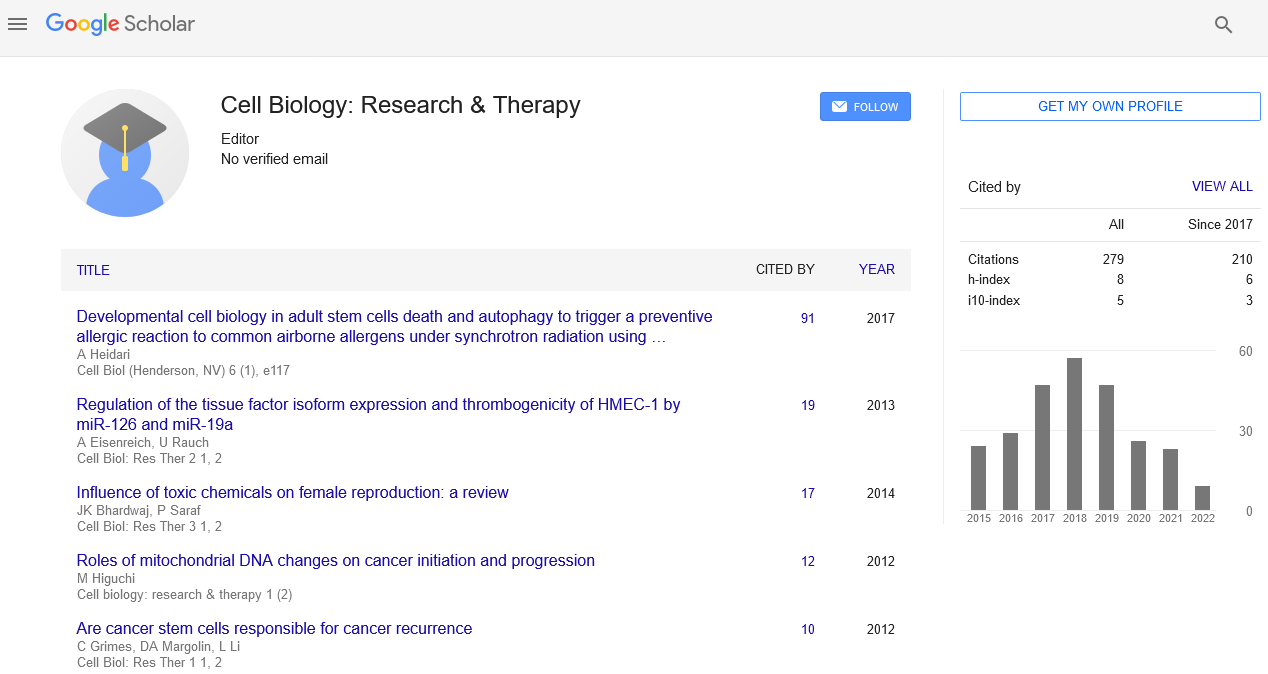Special Issue Article, Cell Biol Res Ther S Vol: 0 Issue: 0
Transforming Growth Factor-Beta and Matrix Metalloproteinases Functional Interplay in Cancer; Implications in Epithelial to Mesenchymal Transition
| Jelena Krstic and Juan F. Santibanez* |
| Laboratory for Experimental Hematology and Stem Cells, Institute for Medical Research, University of Belgrade, Serbia |
| Corresponding author : Juan F. Santibanez Laboratory for Experimental Hematology and Stem Cells, Institute for Medical Research, University of Belgrade, Dr Suboti�?�?a 4, 11129 Belgrade, Serbia Tel: +381-11-2685-788; Fax: +381-11-2643-691 E-mail: jfsantibanez@imi.bg.ac.rs |
| Received: May 20, 2013 Accepted: January 04, 2014 Published: January 08, 2014 |
| Citation: Krstic J, Santibanez JF(2014) Transforming Growth Factor-Beta and Matrix Metalloproteinases Functional Interplay in Cancer; Implications in Epithelial to Mesenchymal Transition. Cell Biol: Res Ther S1:004 doi:10.4172/2324-9293.S1-004 |
Abstract
Transforming Growth Factor-Beta and Matrix Metalloproteinases Functional Interplay in Cancer; Implications in Epithelial to Mesenchymal Transition
Transforming growth factor beta (TGF-β), a pleiotropic factor with several different roles in health and disease, has been shown to act differently during tumorigenesis, depending on the stage of tumor progression. In the early stages, TGF-β acts as a tumor suppressing factor, while in advanced stages of tumor it acts as a tumor promoting factor. One of the hallmarks of tumor progression is the capacity of cancer cells to migrate and invade surrounding tissues with subsequent metastasis to different organs. The matrix metalloproteinases (MMPs) family comprises more than 25 members whose main function is the proteolytic degradation of the extracellular matrix. Recent studies have demonstrated that MMPs’ roles in extracellular signaling can be involved in both homeostasis and disease. Due to their importance, MMPs are tightly regulated at transcriptional level, and can also be regulated through activation and inhibition.
